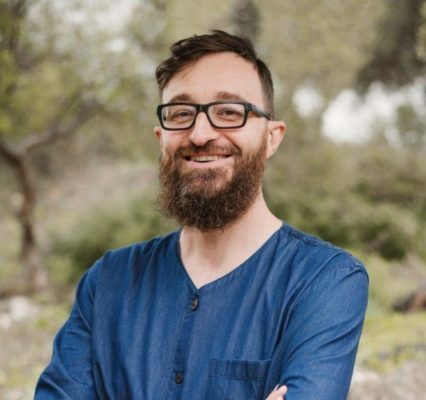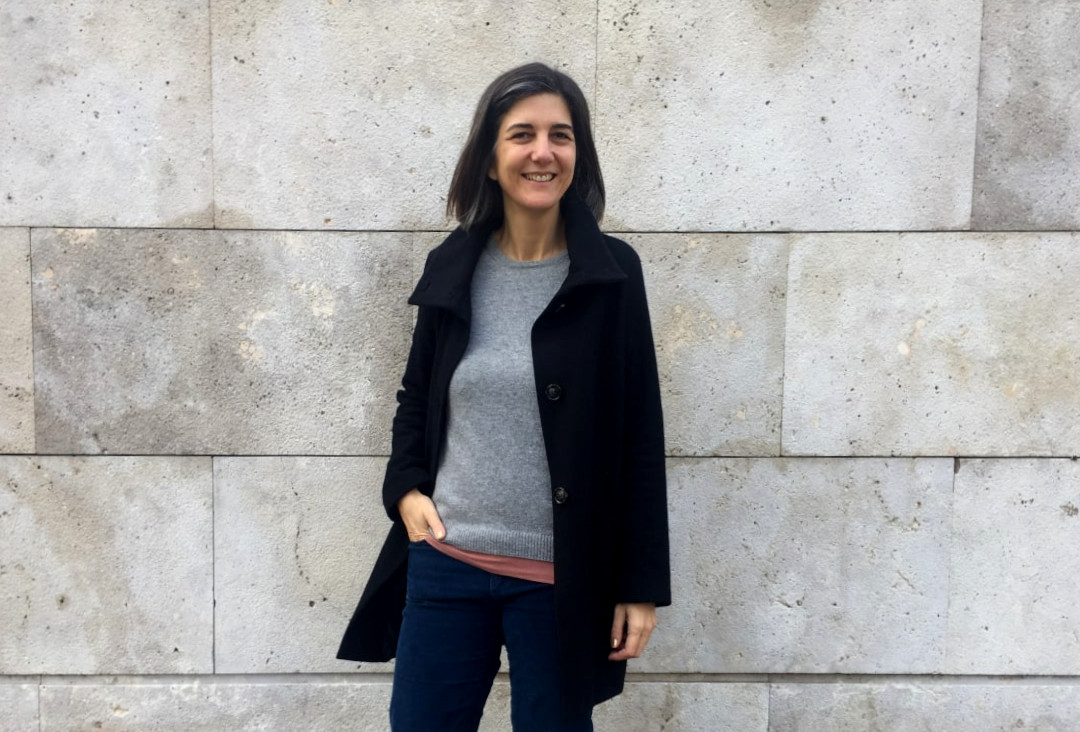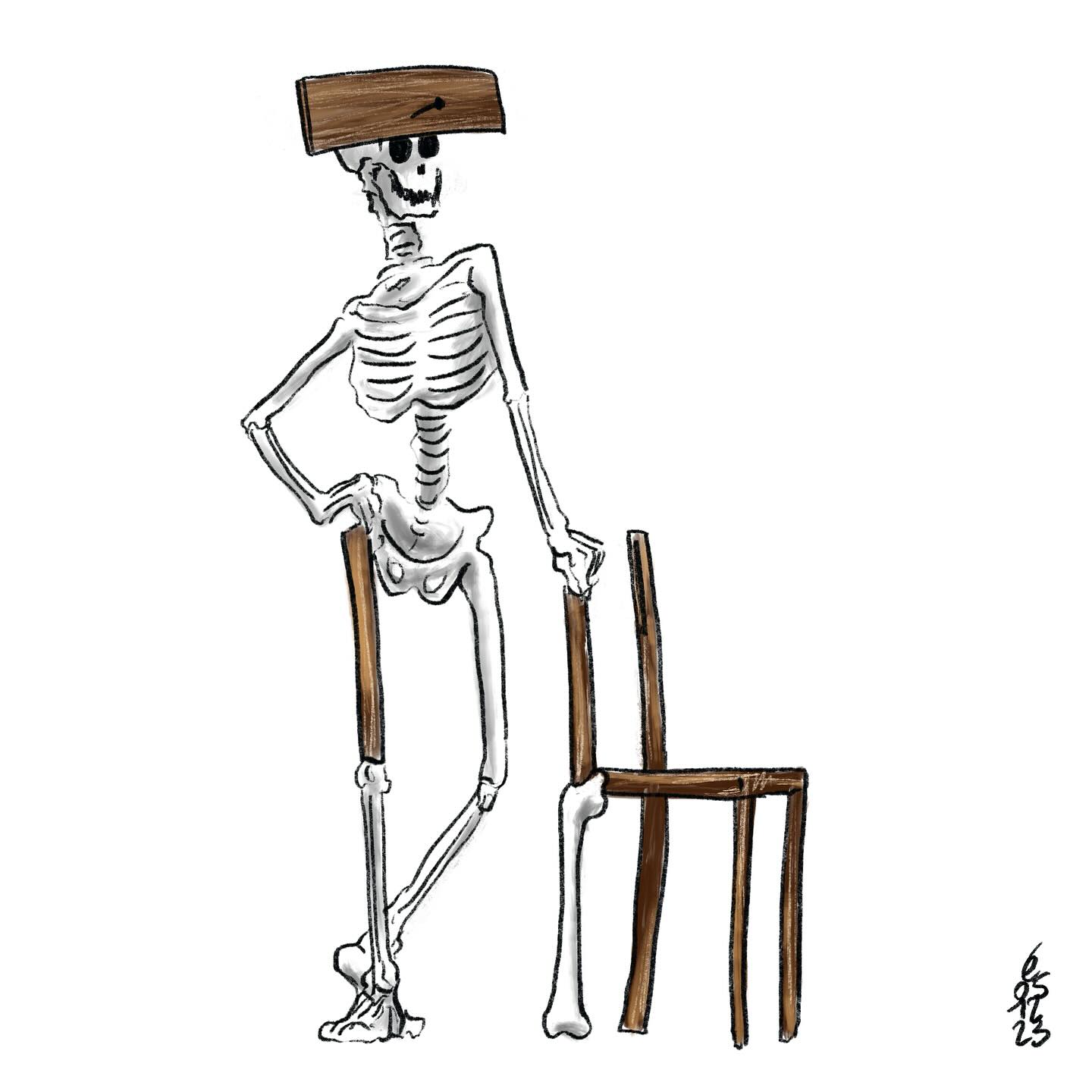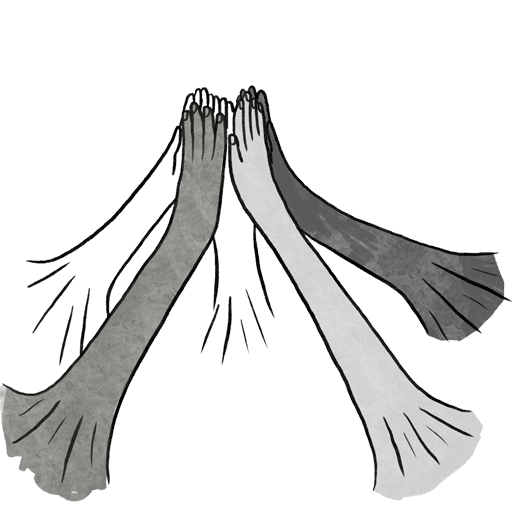Interviews
Raúl Oliván Black Boxes of Democratic Innovation: Opening Institutions from Within
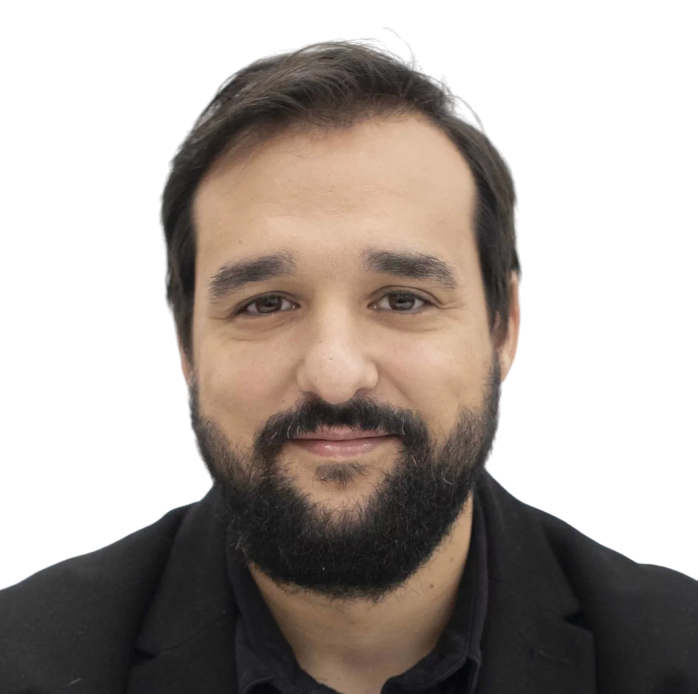
Currently, political disaffection is a growing phenomenon in many democratic societies. More and more people feel disillusioned and disconnected from politics and its institutions, which has led to widespread concern about the health of our democracies.
In this context, Olivier Schulbaum (co-founder of Fundación Platoniq) addresses and analyzes, together with Ral Oliván, how democratic innovation presents itself as a possible solution to reconnect citizens with politics and regain trust in our institutions. Some of these initiatives are carried out by LAAAB Aragón, a citizen laboratory that seeks to promote collaboration between citizens and government to design solutions to public problems. Through a participatory and collaborative approach, LAAAB Aragón celebrates its fifth anniversary this year, reinforcing trust and connection between citizens and administration, and building a more participatory and democratic society.
More Demos, better Cracy. An excess of Demos without Cracy can lead to populism. An excess of Cracy without Demos can generate technocracy.
First of all, it’s a pleasure to be here with you, Raúl. To start, we would like to share that, from the Foundation, we believe that today’s democracy presents structural deficiencies that make it inadequate in the eyes of citizens to address ecological, social, and health crises. In the face of this apparent breakdown, we would like to know your opinion on how the Government of Aragón approaches the democratic issue from Open and Innovative Social Government and how it manages to restore its place to inclusive participation?
Thank you very much for the invitation, it’s a pleasure for me too. We can start with a concise answer: for us, restoring trust in democracy is the first objective. As you know, in recent years, especially in the last 10-15 years, there has been a gap of disaffection, a gap of trust between citizens and institutions, and that affects the party system, affects governments, but even affects the very idea, the very system. And therefore, the very idea of democracy.
After the great recession of 2010-2011, Spain ceased to be one of the countries that trusts democracy the most within the European Union, and that is worrying for us. As the operating system of our society, and despite all its flaws and contradictions, we believe that democracy must be celebrated and defended in a critical way, declaring it unfinished. Our mission is to reflect, deepen, and expand the idea of democracy. To go a little further than the Open Government agenda, adding the layer of affectivity and emotionality.
We have been with the Open Government agenda for almost 15 years, and we believe that openness is only the first step. To open ourselves to transform, going where people are and being self-critical. Asking ourselves questions like “Are we fulfilling our commitment to be transparent and make all government open data available to citizens on our portals?” If we are not fulfilling it, it’s like enacting a law and publishing it, but then not making sure that law is implemented. It’s like saying that people have the right to education, but then not building schools.
We believe that democracy needs to be implemented, developed, and expanded. And that’s where we think services like ours are pioneering projects of what we will end up developing in many municipalities at the regional and national level. We invest millions in education, health, and social services, but we don’t invest money in democracy itself… and this is very serious because that’s where populism creeps in. That’s where illiberal discourses seep in, in the sense of anti-systemic, which can be very harmful and end up being disintegrating of society with narratives of hatred, fear, and exclusion.
Certainly. I understand that entities like LAAAB (Laboratorio de Aragón Gobierno Abierto) and citing Michael Saward, “are key to understanding today’s democratic governance and creating tomorrow’s democratic governance” (Saward, 2021, p. xiv). Do you think that citizen laboratories can be considered a democratic innovation?`
I think that laboratories are interesting because they introduce an element of novelty and interesting, powerful, and revolutionary unlimitation. For the first time in a long time, it is not a public service that comes to provide answers, but a public service that comes to generate questions. It is much more open, powerful, and radical because you don’t know what it will generate.
That is what we aim to do at the LAAB: to generate questions, to create frameworks of reference that make us question things as we have been doing them.
In another public service, when you generate an answer, you can refine and perfect that answer, but it will be very similar to what may arise in 5 years, 20 years, or even 100 years. Technology aside, a hospital today will not be very different from what we will see in the next decade. But the laboratory is a device that has much more openness and margin because questions have a much greater capacity for mutation, adaptation, and flexibility.
That is what we aim to do at the LAAB: to generate questions, to create frameworks of reference that make us question things as we have been doing them, testing, as in any laboratory, with the right to make mistakes. And when we find interesting keys, we somehow inoculate culture to try to replicate and increase the impact of what we have achieved.
Very interesting. Regarding their structure, we observe that citizen laboratories are usually located at a nexus of power: at the intersection of two current trends in democratic governance, such as the emergence of innovative forms of participation through democratic innovation and in parallel with a technocratic trend of elite control. Isn’t this paradoxical? Or is this paradox simply an indicative of a possible future democratic cosmology?
I think we have a very interesting question here. If I think about the large panel in the Plaza del Pilar, it graphically represents the balance of democratic tension: the bisector between the Demos and the Kratos. According to Daniel Innerarity, most political projects focus too much on management and results, falling into a technocratic inertia of a government of reason and not emotions. The European Union is an example of this, very effective in the management of funds, but without an emotional connection to citizens. This generates a problem, like Brexit or what could happen in Italy.
On the other hand, there are very emotional projects oriented towards the Demos, the process, and participation, but that sacrifice efficiency and management capacity for the sake of that process. Here, I refer to past experiences of the so-called “Municipalities of Change,” which, while very legitimate from the standpoint of citizen participation, mostly did not generate real results and did not have a significant impact in terms of “landing actions.”
Finding the right balance is crucial: the Demos to give legitimacy and concrete results to transform people’s lives. You cannot stay in a permanent assembly or a prototype that never becomes effective. It is important to combine both realities. The LAAB is on that bisector, between the Demos and the Kratos, and that is where we must reflect and deepen to expand the idea of democracy critically, adding the layer of affectivity and emotionality.
**A synthesis drawn from your own words could be “More Demos, better Kratos. An excess of Demos without Kratos can lead to populism. An excess of Kratos without Demos can generate technocracy.” What importance does finding the right narrative or words have so that citizens receive the message of change from the institution without technical jargon?
It is a complicated tension because on the one hand, you need people to understand you, but on the other hand, you also have to illuminate a new world that does not exist, and because it does not exist, you have to invent it by stretching words.
Sometimes metaphor, as a space for conceptual encounter, is a good tool. You take words that come from one universe, bring them to another, and that allows you to tell a story. I recently read a phrase that I find very beautiful: “a metaphor has the virtue of presenting you as new, something that is not.”
I think we use metaphors, neologisms, invented words because we are trying to illuminate a new world. At the beginning of “One Hundred Years of Solitude,” it can be read that “we pointed at things with our fingers because they did not yet have names.” Sometimes, as we want to invent things, concepts, artifacts, ways of relating that do not exist, we have to invent these words a bit and use metaphors.
In that challenge, it is known that laboratories aim at play and creativity as two aspects that established democratic innovations rarely incorporate. Would you consider the LAAB as a democratic playground? In what sense?
I really like the question about play and innovation. Not only play as a methodology but also as an experience, as joy, as a space for meeting, laughter, cooperation, fun, and enjoyment. This idea that participation and democracy are serious, boring, solid, and immovable things holds me back. In addition, I believe that play is inherent in the creative process, which is how we learn when we are children. Somehow, it is lost along the educational journey, especially in university and, of course, in the work environment. My experience tells me that **play is a super fertile ground for illuminating ideas and creating alternative frameworks of reference** that allow for that creative and innovative fact.
Among these new laboratory formats around the world, including “policy labs,” citizen innovation labs, and “living labs” that invite the political commitment of multiple stakeholders, what basic characteristics do they share with democratic innovations such as citizen assemblies? Where could they intersect?
In the sense of your question, I understand that laboratories act as spaces of deinstitutionalization, transitional zones between what can happen outside (such as citizen assemblies) and what can happen inside (policy design). They are spaces of mediation between the outside and inside of institutions.
That’s an interesting thought. It reminds me of Godard’s approach of “making cinema about cinema,” and in that sense, do you think it makes sense to create a meta-laboratory about laboratories to explore the potential of the laboratory format with democratic commitment?
I agree with you. I believe that Media Lab Prado has the ability to be a “meta-laboratory” where everyone can come together. Many projects and initiatives are flourishing, and for me, reflection and self-reflection are important as long as they are not limiting or academically exclusive or rigorous. If each word has two meanings, one that is given in the dictionary and one that we are capable of giving it in life, I am particularly interested in the second meaning, as in the word “laboratory”. I am not interested in finding an academic definition for the sake of a paper or academic requirements. I am more interested in spaces of open reflection with their transformations and provocations.
With so many projects flourishing, I believe it’s important to open a chapter on the disconnect between local governments and younger citizens. According to a survey by Playground, 92.43% of those interviewed believe that the opinion of young people is not taken into account when developing policies, and 86.98% feel little or not at all represented by any of the current political parties. In the face of municipalities’ efforts to involve younger generations in their participatory processes, how is the issue of re-politicization and depolarization of young people being addressed in the Open Government of Aragon?
The disconnection of a portion of the citizenry, particularly young people, from governments, institutions, and the democratic system itself is very concerning, with a sector of 18 to 22-year-olds actively supporting Vox’s anti-system madness. On our part, we have several projects such as the Social Impact Academy, Hip-Lockers, and Política Pop, which is a school of philosophy and politics through contemporary narratives that use Netflix and HBO. We don’t work miracles because the phenomenon is infinite and we are watering the desert with a watering can, but at least we show ourselves to be attractive and influential to an audience that is normally completely refractory to the institutional message, which is emitted directly on another bandwidth and doesn’t even pay attention to it. Today we have achieved a certain ability to connect with them, after a process of understanding their emotional coordinates.
Considering that social media should play a role in this reconnection, I would like to share a post you made on Twitter where you said, “Aragonese volunteers contribute 3.5 million hours, and if it were a company, it would be the second-largest in Aragon.” With that said, how could we “demand” that the private sector assume or partially finance volunteering and support the cost of managing it in a solidarity-based manner, especially considering citizen participation and guaranteeing a significant amount of time for their employees to be involved in participatory processes? At Fundación Platoniq, for example, we advocate for 4 hours a week. Do you think that would be a fair balance?
I am very interested in volunteering, especially when it seems that volunteering and social innovation are perceived as distant. It’s as if volunteering is not cool or modern enough for those of us who work in social or public innovation. I believe that this is a mistake because volunteering is a powerful stock of energy that perhaps has not always been properly channeled or exploited, as it has been associated too much with certain types of processes, such as welfare work. Volunteering is a phenomenon that should be an indicator of development and progress in our societies. Where there is volunteering, there is a cohesive society, an advanced society, a society where states and public services are consolidated. There, volunteering acts as an advance guard, identifying new niches but also covering those flanks that the state cannot reach, not due to a lack of resources but due to a question of coordination and capacities.
Sometimes, the state lacks the flexibility, empathy, or necessary effectiveness to carry out certain tasks, and that is where volunteering can play a role. I believe in a society where volunteering will be increasingly important every day, where people will have more and more free time. Algorithms and robots will be doing more and more of our work, freeing up time from repetitive and tedious work. People will be able to go for a walk, cultivate their own garden, join a theater group, or volunteer. Volunteering must grow without the corset of that conservative and welfare-oriented image, with its enormous potential.
Volunteering is a phenomenon that should be an indicator of development and progress in our societies. Where there is volunteering, there is a cohesive society.
I do not see volunteering as a selfless activity. It is a fiction because no one volunteers selflessly. I am not saying that some people do it to feel better but also to meet people, because they are lonely, to flirt, to improve their resume, to practice their skills, out of loneliness, to get out of a slump… whatever it may be. The truth is that volunteering is a very powerful vector. We need to be clever and propose new frameworks in collaboration with the world of companies, more advanced and daring than the world of social organizations. This is where our Cebol project comes into play, a platform that connects volunteers, organizations, and companies to build together. The potential is enormous and one of its objectives is to demonstrate that volunteering does not take away jobs, but rather creates them.
There is still much to do and much to celebrate as well. This March 10th, the FestiLAAAB is coming to celebrate the 5 years of LAAAB. Is there any surprise you can give us a sneak peek of? If you could choose some milestones that you consider relevant for other institutions, we will share them in a “tweet” format from our accounts to all citizens.
Certainly. You can imagine how excited we are to celebrate it because it has been 5 super intense years: with a pandemic, with an intense project like #FrenaLaCurva, but also with a lot of other projects such as Cocina Lab, the OLA public innovation project, the Social Impact Academy, Hate Blockers, Open Kids, Public Service Co-Design, the Radar, the Company with the Elderly… in short, it has been amazing to promote almost twenty projects in these incredible five years. For this FestiLAAAB we have several surprises and the one that excites us the most is the presentation of the Black Box of Innovation, which is a revolutionary leap forward for us. If with the Public Innovation Hexagon and its six vectors of HIP, we had created a tool that allows diagnosing the more than a thousand organizations and teams that have self-assessed with HIP, now with the Black Box, they will also be able to take action, as it is a toolkit with more than 60 methodologies, tools and mini-games that allow you to transform your organization systematically at both the individual, team and entity levels. It will also have some new elements, such as a table for participatory urban planning with very cool digital elements and devices, a luminous panel that allows you to identify your soft skills and those of your team, as well as your competencies… There will be a lot of very cool things and, above all, we are going to celebrate, which is what it’s all about..
Thank you very much for your time, Raúl. Congratulations on your great work, and we hope to meet you at FestiLAAAB.
It was a pleasure to share this space. Thanks also to Fundación Platoniq for their contributions, and yes, we’ll see you at FestiLAAAB.

